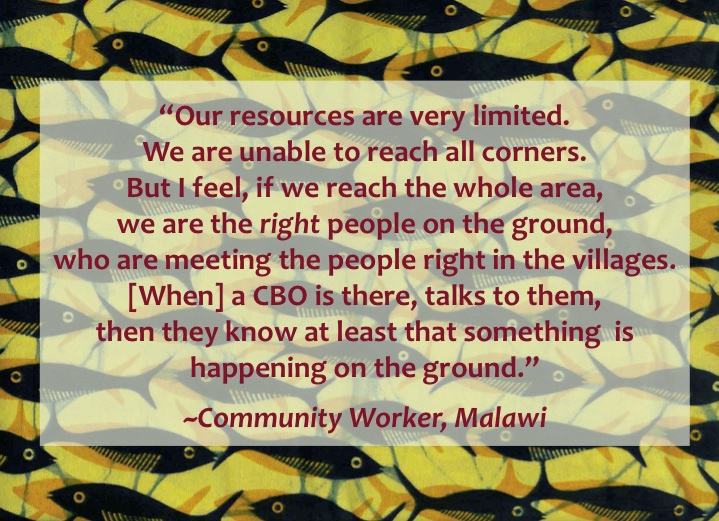Check out my post today on The Broker Online, “What’s missing from the aid effectiveness debate? Overlooking the capacity of local organizations“, in which I argue that rather than being the lowest common denominator of international assistance, local indigenous organizations should be regarded as the fundamental unit of effective development aid.
See also this post from Oxfam: “Somali NGOs’ response to the food crisis: a true beacon.”
The most important question for those attending the Busan conference: How do we do justice to the vast and vital efforts of local groups in the developing world that are grown from the inside and fueled by the dedication, vision, and priorities of the very people they serve?
***
Related Posts
Waiting for Pennies From Heaven
Do CBOs have an image problem?
The Marginalization of CBOs by Development Actors: A Perspective from Zimbabwe


Sometimes the effectiveness of aid is lost when local organisations are sidelined. In most cases the issues of sustainability are not catered for so activities die with the death of the project – but the need will not have gone away. For example Trade Unions are often sidelined when they are development partners and reliable monitors and watch dogs but more important they can contribute to the sustainability and continuity- I belive then aid becomes effective
My development focus is to get a product
that is in demand for income to make the
project sustainable in time. If we go
beyond covering cost and yield a profit
then that may be used for growth of that
activity. If income is less than cost I
will predict that a project ending will be near. I support the Triple Bottom Line.
RE-imagineers
To be drafted are feasibility and project in India with all financial implications needed to kick start momentum towards actualization as alternative foundations & blue prints that can be adapted in Rural Development Models depending on the uniqueness of destinations resources available, eco-systems and Traibal culture: that propagate practices towards a Sustainable & Responsible Development in North East, India
For more information, contact:
Lawrence Dawson,
32 Viviani Road,
Richards Town,
Bangalore-560005
Karnataka,Indi,
(m)919611847120
(R)080-25471999
dawson.lawrence@gmail.com
Partnership on a shared vision and a shared sense of inclusive processes and approaches call for a selection grid. Experiments show that in this area, all, from not working.
– Having visions of convergence
– Mode of decision making within organizations facilitating the negotiation and not imposition, domination or assert
– Choice friendly alliances and networking
– Interest in horizontal and transverse links
– Area of sharing and learning
– Functioning of democratic organizations and respect for intercultural values diversity;
– Mechanism for monitoring and evaluation as a means of access to knowledge and control.
principles
– Value of experience helping the people and teamwork (duration, partnership with other institutions and donors).
– Specify how to support the target must be convinced.
– All areas of activities have their support: they have to know.
– Methodological consistency supports (eg logical framework to be respected)
– Avoid juxtapositions and “cut and paste”.
– Clearly state the method of achieving results.
– Technical tools and approaches much about.
Leveraging social capital
Mobilize networks of relationships for: (i) be aware of opportunities, (ii) have a monitoring system, (iii) to associate with winners (iv) no deal: this is undermining the long term, (v) valuing long immersion in the control of the issues
I agree with the idea where local people and organizations must be involved in coming up with a sustainable project. The focus of any aiding institute must not that of giving resources only, they must make sure that the project is for the people and they will benefit from such aid without going back to the former position before aid.
Pingback: Welcome to the (Global) Accountability Class - RE:Philanthropy